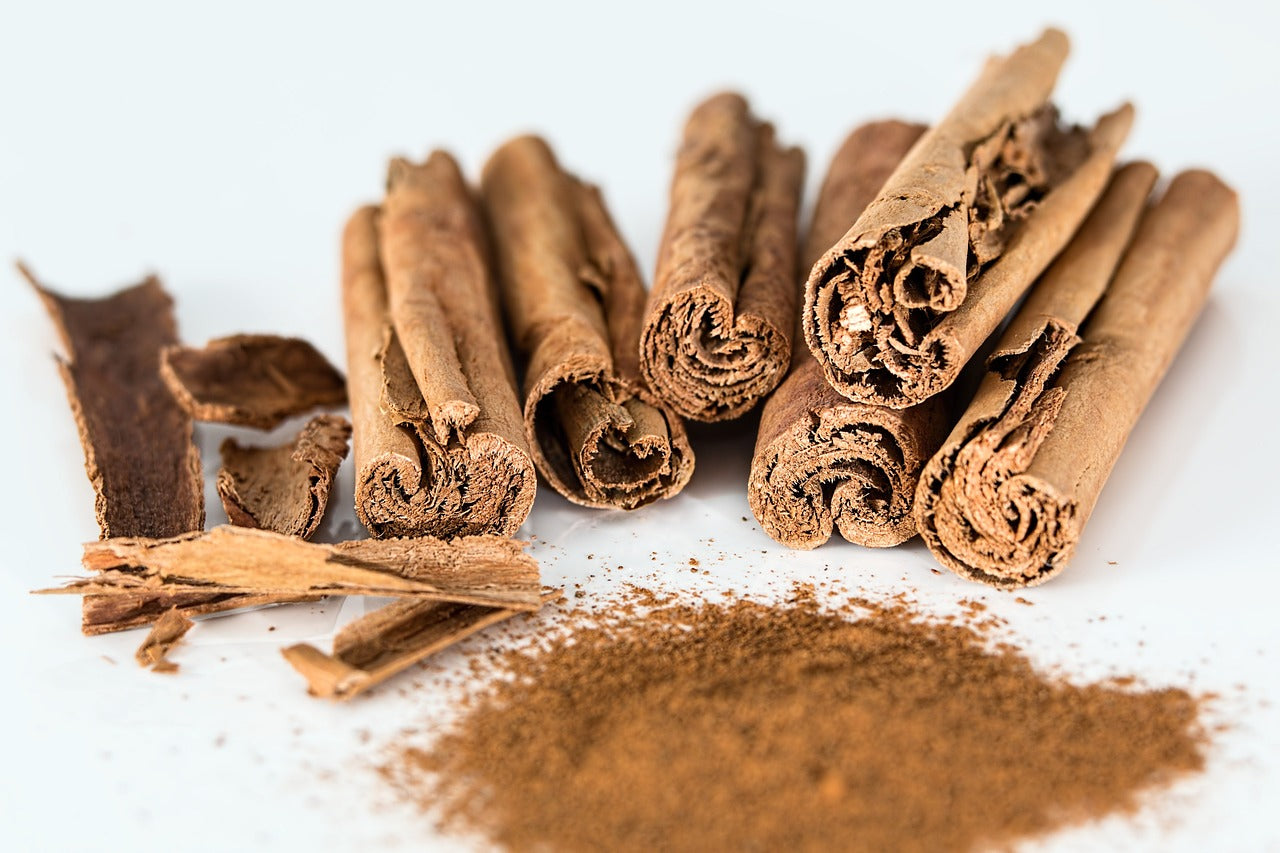
The Benefits of Cinnamon (and Which Kind to Use)
As I write this the Thanksgiving and Christmas season is fast approaching.
Everyone thinks about the holidays as a time to enjoy food and merry times with friends and family.
And when it comes to this season, there are a few foods, and/or spices, that really stick out as being “Christmassy” or “Thanksgivingish”.
One of the big ones is cinnamon.
Plenty of us enjoy cinnamon all year long, but the last 2 months of the year are BIG months for this spice.
What I’m here to tell you today is cinnamon is a bonafide health modifier (in a good way).
I’m also here to tell you there are 2 different kinds, and each has different health benefits (although 1 is clearly better than the other for a wide-ranging number of health benefits).
And, I’m here to tell you what you can expect if you eat it, vs take it in supplemental form.
Cinnamon is a wonderful spice for the most wonderful time of the year.
The Kinds of Cinnamon and What They’re Good For
Chances are you didn’t know there are several kinds of cinnamon. In cooking, there are 4 different kinds they are Cinnamomum verum (Ceylon Cinnamon), Cinnamomum burmannii (Korintje Cinnamon), Cinnamomum cassia (Saigon Cinnamon), and Cinnamomum loureiroi (Royal Cinnamon).
All of these can be used in cooking.
When it comes to their applications in recipes, here’s what AllRecipies.com says about them.
1. Ceylon Cinnamon
Often called true cinnamon, Ceylon cinnamon, or soft cinnamon, this variety is native to Sri Lanka and Southern India, but is widely grown in Mexico and East Africa. It is also sometimes called soft cinnamon because of its soft texture. If you hear the term Mexican cinnamon, this is often what it refers to. "It's more herbal and savory, not super sweet," says Frisch.
- Korintje Cinnamon
Sometimes called Korintje cinnamon, this one is generally milder. It is very common in America — it accounts for close to 70 percent of North American cinnamon imports. Frisch describes it as "a friendly cinnamon that works for everything."
- Saigon Cinnamon
This is most often found on supermarket shelves as Saigon cinnamon. It originates from Southeast Asia. It's pretty sweet, not super spicy. "Most of what's imported as Saigon cinnamon is actually Cinnamomum cassia, grown in Vietnam," says Frisch. "Saigon cinnamon is a misnomer because it was actually the trading point – there is no cinnamon grown near Saigon."
- Royal Cinnamon
Sometimes called Royal cinnamon, this is harder to find on grocery store shelves, but spice purveyors often sell it. It's mostly grown in central Vietnam. "It's super sweet, super spicy," says Frisch, "Cinnamon amped up to 10."
The area that Burlap & Barrel gets it from used to be the cinnamon provider to the royal court — hence the name, Royal cinnamon.”
With there being so many different kinds, each with its own properties, you may be wondering which one does what for you, right?
The good news is I’m here to help you out with that.
The Health Benefits of Cinnamon
I know that when we teased this article we talked about how cinnamon could help you lose weight and boost brain health.
All of that is true, and there is of course more that cinnamon can do for you.
But, I’ll say this much.
In most cases, Ceylon cinnamon is the preferred form of this spice for health modulation.
This is simply because it contains more molecules, and nutrients, that can influence health. Other forms of cinnamon have some of these properties, Ceylon cinnamon just has more per weight.
For instance, when it comes to heart health, Ceylon outperforms its counterparts, here’s how.
1 - Cinnamon Helps the Heart:
In all cinnamon, you can find the acid, cinnamic acid, which is obviously the namesake of cinnamon. Ceylon cinnamon just has more of it.
We know that this acid has anti-inflammatory properties.
Research into cinnamic acid indicates that it can positively influence blood flow (making it easier for it to flow through your cardiovascular system) which reduces stress on the heart.
Studies done as far back as 1975 show that Ceylon cinnamon can help lower blood pressure, which could also help to mitigate the risk of developing heart disease.
Again, all cinnamon can do this for you, but an extract of Ceylon cinnamon stands to give you the best bang for your buck from a therapeutic standpoint.
2 - Cinnamon May Help Benefit Blood Sugar:
Another compound found in most forms of cinnamon, but is especially high in Ceylon cinnamon is cinnamtannin B1.
This compound is a polyphenol that has the ability to help inhibit glucose uptake after meals. By lowering glucose absorption you become more sensitive to insulin which can help to balance blood sugar.
Stabilizing blood sugar is one of the best ways I know of to attain great health, and Ceylon cinnamon is far and away the best form of cinnamon to help accomplish this.
3 - It May Help You Lose Weight:
One of the things I’ve written about extensively is how blood sugar relates to body fat.
If you want to be a healthy weight, then you want to maintain normalized blood sugar. As I mentioned above, Ceylon cinnamon is the best form of cinnamon for keeping blood sugar balanced.
Interestingly, there are studies to support taking cinnamon for weight loss (or healthy weight management).
A study of 12 trials, with 786 people indicated that Ceylon cinnamon administration was responsible for a significant reduction in body weight amongst obese individuals and led them to conclude “Cinnamon supplementation significantly affects obesity measures. It could be recommended as a weight-reducing supplement in obesity management.”
Now, that doesn’t mean you can take a cinnamon supplement, stop working out and eat whatever and lose weight, but in tandem with healthy eating and other weight loss measures you may expect to see rapid reductions in body weight.
4 - Promotes a Healthy Brain
Again, related to the blood sugar balancing properties of Ceylon cinnamon, observations of those who take this supplement show that brain health is preserved, or even improved over baseline.
Perfect Keto notes:
“Ceylon cinnamon improved cognition in rats given a drug meant to induce cognitive decline. Specifically, the rats showed improved memory and recall after taking cinnamon extract[*].
An in vitro study also showed Ceylon cinnamon’s ability to inhibit two different markers of Alzheimer’s disease[*].”
Eat it, Buy It As a Supplement, But Try and Take It
It’s pretty easy to see cinnamon is a great supplement to add to a daily regimen.
It’s also easy to see that it’s a decent spice to add to cooking yearlong.
Ceylon cinnamon is a bit pricey if you were to buy it for cooking, but supplemental forms of the extract are reasonably priced and highly effective at getting you results.



